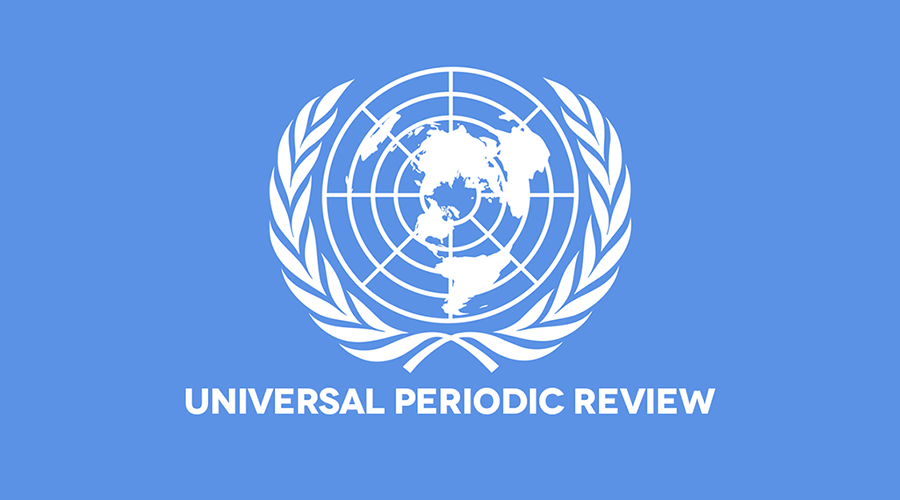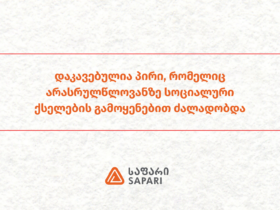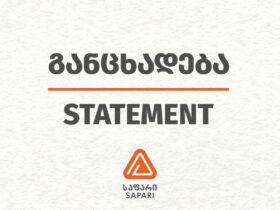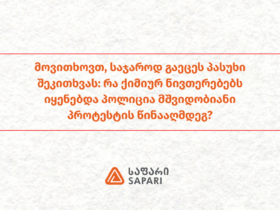Georgia Submission to the UN Universal Periodic Review
Thirty-Seventh Session of the UPR Working Group of the Human Rights Council
November 2020
This submission outlines the challenges in the criminal justice system and the legislation of Georgia in addressing sexual violence crimes and provides recommendations for improving access to justice for sexual violence through improving legislation and criminal justice procedures. The authors of the report
submit that developing effective criminal law mechanisms for the elimination of sexual violence is a fundamental step in achieving substantive and transformative
equality for women and girls in Georgia.
Submitted by:
- Equality Now: an international human rights organization with ECOSOC status working to protect and promote the rights of women and girls worldwide since 1992, including through our membership network comprised of individuals and organizations in over 160 countries.
- Anti-Violence Network of Georgia (AVNG): a non-governmental organization established in 2003, comprising around 400 members nationwide. Its main goal is to create a non-violent society in Georgia. The immediate goals are to respond appropriately to cases of violence against civilians and to engage government and non-governmental actors on their behalf.
- Women’s Information Center: one of the first organizations which started working on gender issues and improving women’s status in Georgia. Its main priorities are to provide assistance, undertake advocacy, and raise awareness of women from different regions, internally displaced persons, and ethnic minority women. The organization actively lobbies and advocates for the inclusion of gender issues in legislative and executive bodies.
- Coalition for Independent Living: a cross-disability coalition of 26 non-governmental organizations working on issues affecting persons with disabilities. Since 2003, CIL has been implementing projects to protect the rights of persons with disabilities, increase their inclusion in political, economic, and social life, and promote independent living.
- Cultural-Humanitarian Fund “Sukhumi”: IDP women NGO based in Kutaisi and Tbilisi with over 20 years of experience in advancing gender equality, women’s political empowerment, fighting against domestic violence and promoting women’s participation in peace-building. The organization strives to promote social, educational, economical, and political development of IDPs and conflict-affected women and girls by building their leadership capacities, raising their social and legal awareness, supporting them to develop themselves into equal partners, active citizens and central decision-makers. It advocates for community concerns through which women pursue human rights and peace.
- Georgian Democracy Initiative: a local human rights organization focusing on civil and political rights and their protection through strategic litigation, equality, the judiciary, and civic education. For several years it provided free legal aid for victims of domestic violence and was involved in the criminal justice reform process.
- Georgian Young Lawyers Association (GYLA): a non-governmental organization that aims to protect human rights and promote good governance in Georgia through strategic litigation, advocacy, and awareness-raising on human rights. Over the last 20 years, GYLA has been implementing a number of projects dedicated specifically to the recognition and protection of domestic violence victims’ rights, combating domestic and gender-based violence.
- Human Rights Center: aims to increase respect for human rights, fundamental freedoms, and the promotion of peace processes in Georgia. To achieve this, it works towards increasing public awareness and respect for human rights, calling for the government to respect the rule of law, principles of transparency, and the redistribution of power.
- Human Right Education and Monitoring Center (EMC): a human rights organization which aims to promote the protection of the rights of marginalized and discriminated groups, including rights of workers, homeless individuals, people with disabilities, religious minorities, LGBTQI persons and others through research, advocacy and strategic litigation. The organization also monitors the ongoing institutional reforms in Georgia and supports the improvement of legal protective mechanisms and strengthening of the legislative framework. EMC is not a traditional human rights organization, it represents an open platform for human rights activists, and aims to create alternative spaces, empower civic activists, and support their inclusion in civic initiatives.
- Partnership for Human Rights: a non-governmental, not-for-profit organization that aims to create an environment where all humans have equal rights and opportunities to pursue happiness. PHR unites 15 motivated human rights defenders, researchers, and other professionals who are dedicated to using their knowledge, beliefs, and solidarity to reach equality and justice for children, the elderly, individuals with disabilities, women, and other underprivileged groups of Georgia.
- Rights Georgia: a voluntary entity of persons protecting and promoting human rights and freedoms, increasing human rights awareness, contributing to the harmonization of national legislation with international human rights standards, and monitoring state activities in that regard.
- Union Sapari: a women’s rights organization in Georgia established in 2001. The organization covers all aspects of women’s rights, gender mainstreaming, and women’s empowerment. The mission of ‘Sapari’ is to create and sustain an equal, non-discriminatory, and non-violent environment. To that end, the organization engages, inter alia, in strategic litigation, lobbying and advocacy activities, research, capacity building of professionals, and awareness-raising campaigns.
- Taso Foundation: an independent Georgian national women’s fund, established in 2007, developed as a result of the Open Society Foundation Georgia (OSFG) Women’s Program (1998-2006). Its mission was building a women’s movement in Georgia and the first generation of women’s non-governmental organizations was developed and supported through the Program’s grant-making, operational and mixed programs.
- Women Engage for a Common Future (Georgia Branch): a branch office of WECF International and has ECOSOC status. WECF is a worldwide network of 150 women, health, and environmental organizations with a historical focus on Eastern Europe and Central Asia. WECF’s NGO network brings people all over the world together for sustainable development and a healthy environment for all since 1994.
- Women’s Initiatives Supporting Group (WISG): a non-governmental, non-profit organization defending the human rights of lesbian, bisexual women, trans and intersex persons in Georgia.
- Open Society Georgia Foundation (OSFG): founded in 1994 as part of the Open Society Foundations’ global network and works to build a vibrant and vocal civil society capable of holding the government to account for its citizens. Over the course of more than two decades of work in Georgia, OSFG has made great efforts to rebuff threats to democratic progress and set high standards in key areas such as human rights protection, rule of law and good governance.
- Tbilisi Pride: a civic movement that opposes homophobia/transphobia and fights to overcome it through exercising the constitutional rights of peaceful assembly and manifestation. The goal of the movement is to contribute to creating an environment, where LGBT people are protected, accepted, free, and equal with the other citizens of Georgia.






